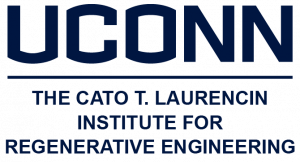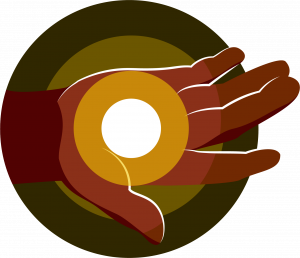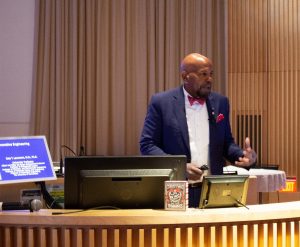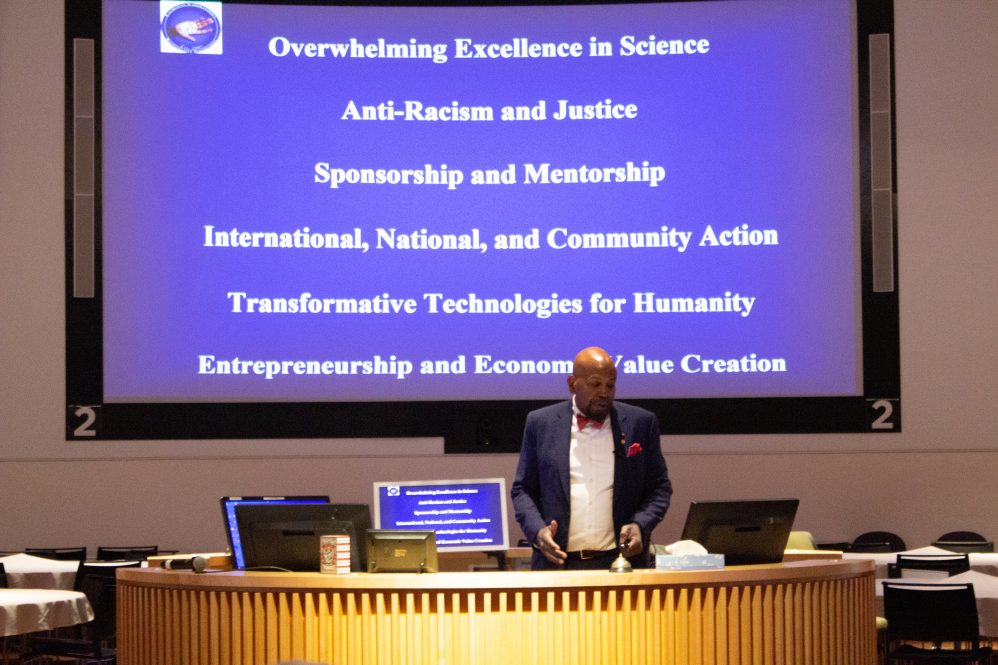The University of Connecticut has established The Cato T. Laurencin Institute for Regenerative Engineering.
This new cross-campus Institute supports a core mission of UConn to foster new ways of thinking and new approaches to find answers in medicine, science, engineering, and technology. The Institute reports to the Office of the Provost.
To launch The Cato T. Laurencin Institute for Regenerative Engineering UConn President Radenka Maric and UConn Provost Anne D’Alleva hosted a celebratory reception on February 24 at UConn School of Medicine.

“The Cato T. Laurencin Institute for Regenerative Engineering will have extraordinary impact on the world,” says UConn President Radenka Maric. “By any metric, Dr. Laurencin would be considered among the most accomplished faculty in UConn’s history. He is one of only 25 individuals nationally, and our first faculty member ever, elected to all three of the U.S. National Academies and our University’s first recipient of the National Medal of Technology and Innovation awarded by the President of the United States. In receiving the Spingarn Medal he was declared by the NAACP to be the world’s foremost engineer-physician-scientist. He is also a great mentor and public servant. He is the recipient of the National Science Foundation’s Presidential Award for Excellence in Science, Math and Engineering Mentoring and has been a fervent advocate and champion for health care equity and social justice his entire career. His contributions to science, medicine, and humanity are truly extraordinary.”
“This Institute initiative is only one of the countless number of Dr. Laurencin’s contributions to the development of science and engineering,” says Anne D’Alleva, Provost and Executive Vice President for Academic Affairs at UConn. “Dr. Laurencin is known nationally and internationally for his work that bridges engineering and medicine. He creates real opportunity to solve some of the most important medical issues of our time.”
Regenerative engineering is a field founded by Laurencin, University Professor and the Albert and Wilda Van Dusen Distinguished Endowed Professor of Orthopaedic Surgery at UConn. It is the convergence of advanced materials sciences, stems cell science, physics, developmental biology, and clinical translation for the regeneration of complex tissues and organ systems. The Cato T. Laurencin Institute for Regenerative Engineering represents a transdisciplinary effort at UConn with a focus on the musculoskeletal area. The Institute integrates biology, medicine, surgery, chemistry, physics, engineering, and artificial intelligence (AI)/machine learning to create a powerful platform for addressing scientific and medical problems in the regeneration and healing of complex tissues, organs, or organ systems.
 The new Cato T. Laurencin Institute for Regenerative Engineering embraces the six pillars described by Laurencin:
The new Cato T. Laurencin Institute for Regenerative Engineering embraces the six pillars described by Laurencin:
- Overwhelming Excellence in Science
- Anti-Racism and Justice
- Sponsorship and Mentorship
- International, National, and Community Action
- Transformative Technologies for Humanity
- Entrepreneurship and Economic Value Creation
The Cato T. Laurencin Institute continues its breakthrough work dedicated to achieving limb regeneration by the year 2030. The program is entitled the Hartford Engineering a Limb Project (HEAL). Innovation and problem-solving beyond conventional academic boundaries has been the core of the work of Laurencin’s Connecticut Convergence Institute for Translation in Regenerative Engineering. The new Cato T. Laurencin Institute embraces convergence in fostering new ways of thinking and new approaches to create answers through an un-siloed philosophy embracing medicine, science, engineering, and technology. The new Institute hopes to engage a broad cross-university community in carrying out its vital mission.

“I am excited to be leading this new cross-university Institute bringing convergence research to new heights,” says Laurencin. “I am grateful for the support from University leadership on this important effort. The scientific and educational opportunities being pursued now and in the future at UConn will enable innovation and problem-solving beyond conventional academic boundaries.”
“Thanks to Dr. Laurencin for all he does for the University, UConn Health, the community, and the next generation of physician-scientists, including those growing his field of regenerative engineering,” says UConn Health Interim CEO Dr. Bruce T. Liang who is also dean of UConn School of Medicine. “His new cross-campus Institute is bringing everyone together to further advance scientific excellence and technology, strike out racism, and even conquer his grand research challenge of regrowing limbs. The Institute will bring about transformative healing to so many.”



